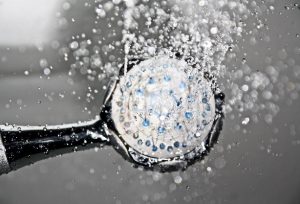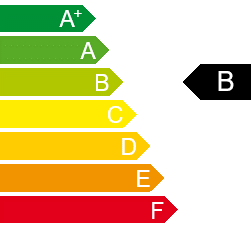Chelgate Public Affairs Publishes Guides on Private Aviation & Water Saving Labelling
Our affiliate company, Chelgate Public Affairs has today published briefing papers on two sectors that are likely to receive significant attention from the European Commission over the next year. These cover the effect of BREXIT on Private Aviation companies and the impact on water companies by the introduction of Water Saving Labelling.
Private Aviation Companies – BREXIT
Introduction
Aviation companies are by their very nature international. Their business models are predicated on crossing borders and they need to be able to do so flexibly and swiftly. These issues are even more acute for private aviation operators, based in the UK, as they will not be included in many of the bilateral agreements currently being negotiated between the UK and EU authorities.
Requirements for aviation businesses operating in Europe after the UK leaves the EU
If the UK leaves the EU without a deal on 31 October 2019, aerospace businesses, airlPrivate Aviation Legislationines and aviation personnel may need new or changed certification, licences and documentation to undertake activities involving the design, production, maintenance and operation of aircraft between the UK and the EU, EEA and Switzerland.
According to the Department from Transport, when the UK leaves the EU, the UK Civil Aviation Authority (CAA) will take over many functions currently performed by the European Aviation Safety Agency (EASA) in relation to aviation safety approvals and certifications.
This will no doubt affect the way in which UK registered business need to go about their government relations as they will no longer be able to rely on the UK Government being able to defend their interests within the policy-making institutions of the EU and EEAS.
EU Aviation Operators
If we leave the EU with no deal, one major concern was whether the UK will be in a place to operate international flights for private aviation operators in the EU. The UK CAA, prior to the previous Brexit deadline of 31 March, indicated that the UK would allow a three-month interim period before applying any flight restrictions to EU private aviation operators. It is assumed that the EASA would make similar commitments for UK-based operators, for the sake of continuity.
European union aviation safety agency (EASA)
The UK will likely remain within the EASA post-Brexit and remain under the oversight and aviation legislation as EU Member states. In such circumstances, the UK – like Lichtenstein, Norway, Switzerland and Iceland – could be granted participation under Article 129 of the Regulation 2018/1139 and become members of the EASA, without voting rights.
Sectors such as aerospace which are highly integrated across Europe will likely remained aligned. However, it remains for the UK to decide in which sectors it wishes to maintain regulatory alignment with the EU and the Government of the day may decide to meet the same regulatory goals of the EASA by different means going forward.
Helicopter operators
The UK has one of the largest helicopter markets in Europe and many private aviation companies will also operate a helicopter service as part of their packages; however, this market is put at risk in the event of a disorderly Brexit. Helicopter authorisation is currently
This also has profound effects on the ability to use helicopters for search and rescue operations across Europe. Whilst the Maritime and Coastguard Agency has been amending notices to inform stakeholders of the implications of Brexit, there is still a great deal of uncertainty going forward.
Further information
You can download our analysis here – Private Aviation Brexit Brief
If you want to discuss this further please contact Chris Morris by email.
EU Water Saving Labelling
Introduction
Many initiatives have been developed in the past 10-15 years to address the efficiency of water using products at national and international levels. Many of these are now in urgent need of review and updating – in particular, the current EU labelling scheme for shower heads. Given the recent advances in eco shower tools which can control the flow and spray of water, the EU Commission wants to encourage consumers to purchase such products. Whilst all policy options are currently on the table, it is believed that a new mandatory EU Water Saving Label for bathroom products could be the most suitable.
Political Background
Climate change and increasing needs for environment protection, natural resources preservation and efficient use, the availability of fresh water and patterns in water consumption Water Saving Labelling this is becoming even more important – especially with a Greener EU Parliament starting its new mandate this month.
The new EU Commission and EU Parliament have begun their new mandates in July. The EU Commission will publish its new Work Programme and the EU Parliament will begin discussing legislative priorities immediately after they begin their work. Both institutions, alongside the EU Council, are likely to prioritise water conservation and efficiency within their new mandates. There will likely be particular emphasis on such issues from the newly elected EU Parliament, especially given the greater number of ‘green’ MEPs ready to take up their seats to push for more stringent and ambitious environmental regulations.
Current EU Rules – The European Water Label Voluntary Agreement
The European Water Label was launched in 2014, designed to provide information to consumers on the water consumption and efficiency of water-using devices. The aim of this label, as is the aim with all such EU efficiency labels, is to promote the most efficient devices and result in consumers making more informed choices.
The voluntary label, developed by the Bathroom manufacturers Association and operated by The Water Label Company, has been reasonably successful in formalising the water efficiency label. However, walk into any bathroom appliances store and you will see the uptake of the label and the general awareness is simply inadequate. Whilst The Water Label Company have collated a great deal of insightful information on their website, the current water label is in no way prominent at the point of purchase for consumers – owing to its voluntary nature. There is no incentive for consumers to change their behaviour.
Role of EU voluntary agreements
Self-regulation may achieve the ecodesign policy objectives more quickly or at lesser expense than mandatory requirements. Therefore, industry sectors sometimes propose voluntary agreements (VAs) as alternatives to potential ecodesign regulation- which are mandatory and placed on all products. Such agreements need to fulfill specific criteria of the Ecodesign Directive and are assessed and monitored by the Commission.
Due to their voluntary nature, these agreements have been deemed inadequate by the EU Commission as they rarely penetrate sufficiently enough to ensure genuinely informed consumers. Unlike the ecodesign and energy labelling regulations which are required to be displayed on all products which they cover, voluntary agreements simply raise awareness of energy saving, and economical savings, of certain products.
Future regulation – EU Shower Head Efficiency Label
 EU consumers lack consistent information on the performance and water consumption of basic bathroom products. The current label does not satisfactorily deal with this issue. Consumers Water Saving Labelling have little information about the water saving capabilities of these devices, and even less about the environmental, and often financial, benefit that water efficient devices can offer. Therefore, the EU Commission and EU Parliament have indicated they are going to begin exploring the possibility of converting several voluntary agreements, including bathroom appliances, into energy efficiency labels. The energy efficiency and ecodesign labelling scheme has been a great success for the EU Institutions and is credited with the removal of a whole range of poorly performing products from light bulbs to washing machines.
EU consumers lack consistent information on the performance and water consumption of basic bathroom products. The current label does not satisfactorily deal with this issue. Consumers Water Saving Labelling have little information about the water saving capabilities of these devices, and even less about the environmental, and often financial, benefit that water efficient devices can offer. Therefore, the EU Commission and EU Parliament have indicated they are going to begin exploring the possibility of converting several voluntary agreements, including bathroom appliances, into energy efficiency labels. The energy efficiency and ecodesign labelling scheme has been a great success for the EU Institutions and is credited with the removal of a whole range of poorly performing products from light bulbs to washing machines.
Opportunity
For those companies who produce eco shower heads, as well as other water conserving bathroom appliances, now is the time to become an engaged stakeholder in Brussels and shape the future regulatory environment. The newly instilled EU Parliament and Commission will be eager to engage with companies who produce such technologies in order to develop mandatory EU-wide efficiency labels. These labels will be far more prominent than previous labels and allow consumers to make more informed choices when next purchasing a bathroom appliance.
Brexit – what next for EU efficiency labels in the UK?
Whilst we are discussing the possibility of an EU-wide efficiency label, we must also bear in mind the effect the Brexit process could have on the use of such a label in the UK in the future. With respect to energy efficiency legislation, the provisions of the Energy Efficiency Directive are already to a large extent reflected in by UK legislation. The EU ecolabelling and ecodesign measures will probably be transformed relatively quickly into UK law. Measures on products such as light bulbs or domestic water heaters may, or may not, be amended or dropped. Therefore, any such water efficiency label adopted by the EU will be quickly and easily adopted by the UK post Brexit and displayed in UK stores.
Further information
You can download our analysis here – EU Water Saving Label Brief
If you want to discuss this further please contact Chris Morris by email.
